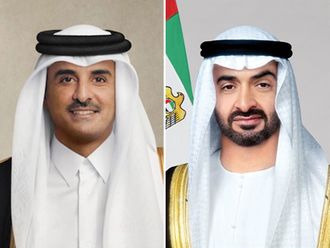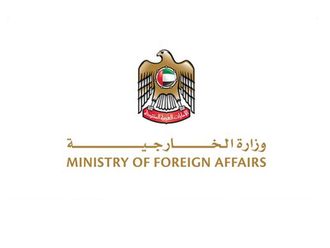Dubai: The UAE has joined the list of countries to adopt the Advance Passenger Information System (Apis) — an electronic interchange system that allows countries to assess a traveller’s risk factor before boarding the plane.
Since going online in the country in 2014, both airports in Abu Dhabi and Dubai have logged permanently into the system.
“The UAE’s borders have extended beyond its geographical margins. Every check-in station around the world that deals with a passenger coming to the UAE is considered an entry border,” said Laila Ali Bin Hareb Al Muhairi, assistant director-general of Strategy and International Affairs at the General Civil Aviation Authority (GCAA).
“The Apis assesses the risk-factor of a traveller before they even board the plane to the UAE. The system is also used to prevent anyone with a criminal case from leaving the UAE. A number of countries are integrated into the system, including Turkey, the UK and the US.”
Laila was speaking at the Future of Borders Conference — a two-day conference taking place at the Ritz-Carlton Hotel in DIFC. The event brings together 24 speakers from around the world on a single platform to share insights on challenges facing the border control industry and the aviation sector.
“The Apis is now fully implemented and operational in all Dubai and Abu Dhabi airports,” she said, adding that the system was up and running in a record time of two years since the idea was conceived. “The system is connected to airport check-in counters in a number of airports, including those in Istanbul and London. It is a two direction integration between airlines and government databases.”
Laila said that the system cross-references travellers on a unified database, which captures travellers’ data through passports, online booking and reservation system, and a global distribution system.
“Though the Apis is a complex system, it functions on simple rules. Once a passenger’s information is checked it gives out either: a Board, No Board, or Probation message, which advises officials to keep an eye on the passenger.”
Laila said the system is linked to Ministry of Interior, General Directorate of Residency and Foreigner Affairs and Dubai Police as well.
“The idea to implement it here was first conceived in 2012,” she said, “Today we have two centres, in Dubai and Abu Dhabi. We are also proud to announce that our centres have a 100 per cent Emiratisation rate.”
Major-General Mohammad Ahmad Al Merri, director-general of the GDRFA-Dubai, said: “The UAE presents one of the best examples of using technology to transform borders and the aviation sector as a whole. Dubai International Airport handled 70.5 million passengers last year, is now the world’s busiest airport. With 103 million passengers expected to use Dubai International Airport by 2020, the GDRFA faces the challenging task of ensuring smooth and fast processing for passengers travelling through the airport.”
Al Merri said Apis reduces the passenger check-in procedure to less than 20 seconds.
“The Apis supports direct passenger flight connections to 149 cities, thereby tapping into export markets of 13 per cent of the world’s population. The Apis system will reduce passenger check-in procedure to 20 seconds.”










